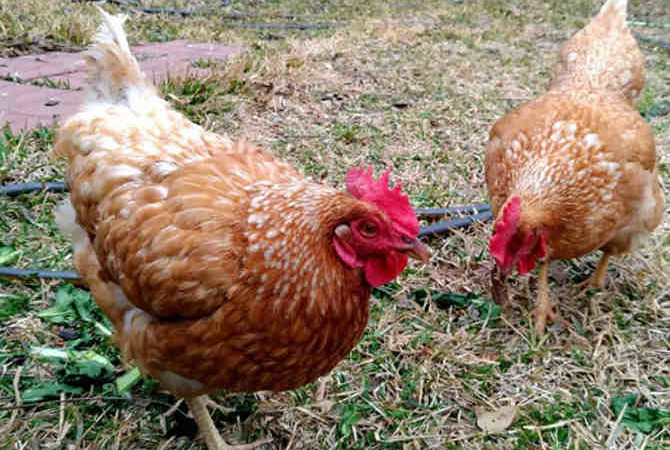

Everyone would want to have farm fresh eggs to enjoy every day. For those who live in the country, having your own small flock of chickens can be the perfect fit. While there are many rewarding aspects of owning your own chickens if you live in a rural area, there are challenges, too.
Benefits of Raising Chickens
Chicken manure is a free source of fertilizer for your vegetable garden. Trees and other plants love it, too. Just make sure you compost the chicken manure before putting it directly on plants. If not composted first, the high nitrogen concentration in chicken manure can kill plants.
Anywhere chickens roam, they will scratch at the dirt with their feet, looking for food, plants, insects and small rocks. Using their claws to pierce the soil, chickens help loosen and aerate the soil.
Chickens love to eat dandelions and other weeds even ones pulled from your vegetable garden! Their diet also includes beetles and grubs, so they help keep the bug population down in the summer. Chickens also eat pests that can destroy plants.
Challenges
Be sure to check your state and local zoning regulations before starting your flock. Areas that are zoned for agriculture shouldn’t have any problems with raising either chickens or roosters. However, if you live close to a suburban or urban area, roosters might be banned.
Not only are you paying for a coop, a waterer, feed and shavings on a regular basis, but you’re also committing your time. Although chickens are low-maintenance animals, they still require daily care and monitoring. You have to make sure their waterers and feeders are full, collect eggs, secure the birds at night, and keep their environment clean. If you travel, you’ll have to make sure you can find someone to do these daily chores while you are away.
Choosing the best coop for your flock can certainly be challenging. The design, size, and quality of your coop can be an important factor in your success. Selecting the wrong coop can result in behavioral problems like feather picking or egg eating, loss of birds to predators, and general frustration. Many commercially sold chicken houses today are built with fir, which is very flimsy, doesn’t last, and is not predator-proof, so buy with caution.
 Contact Jaguza Support
Contact Jaguza Support